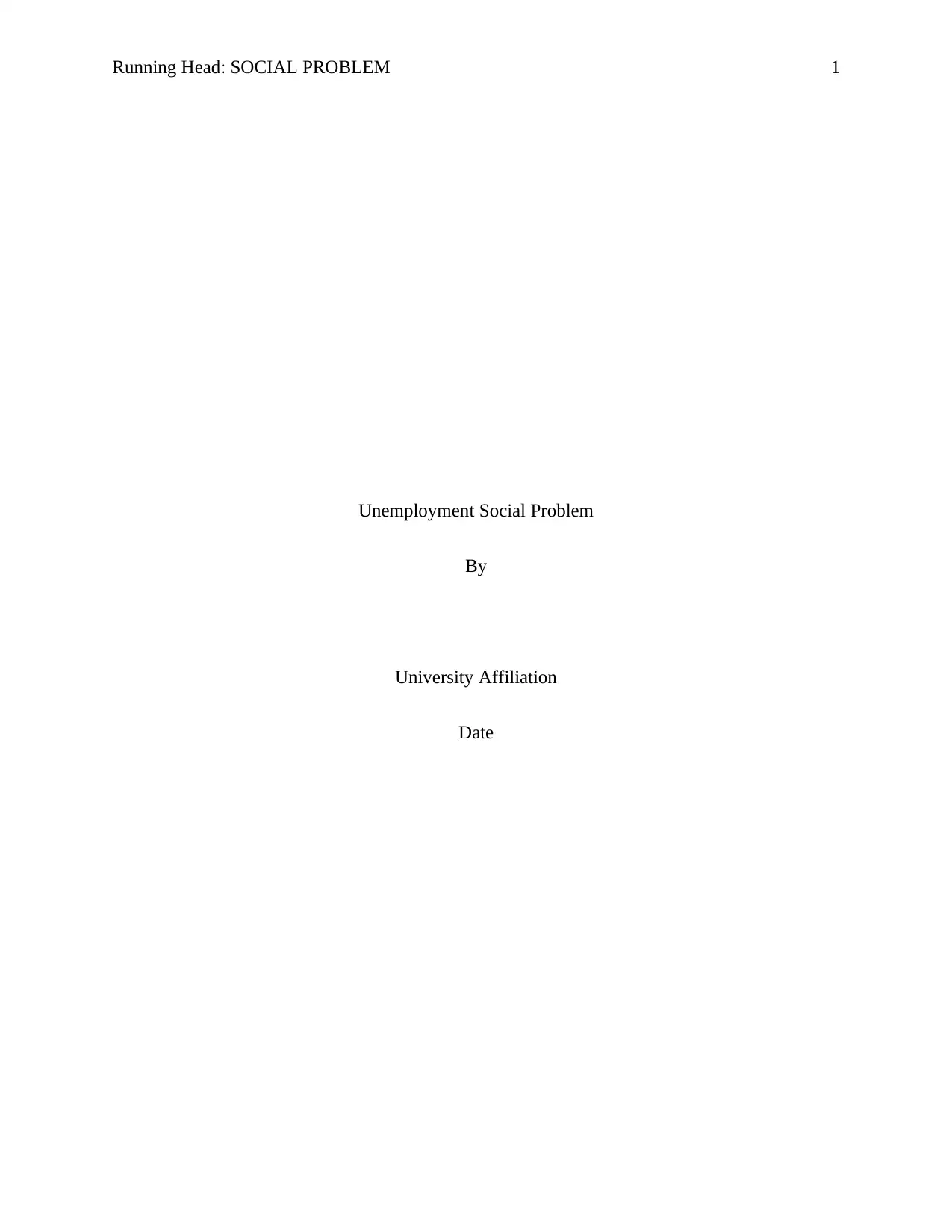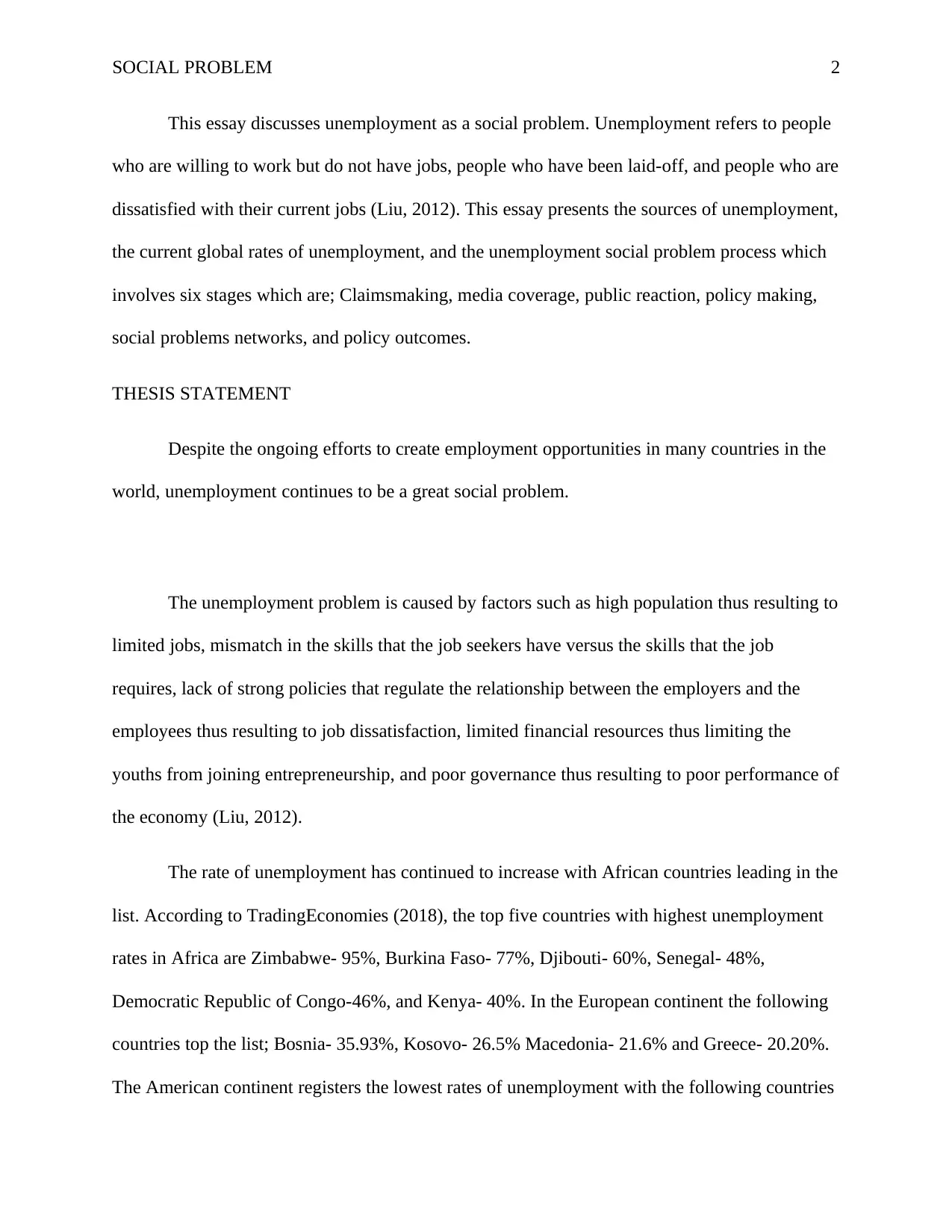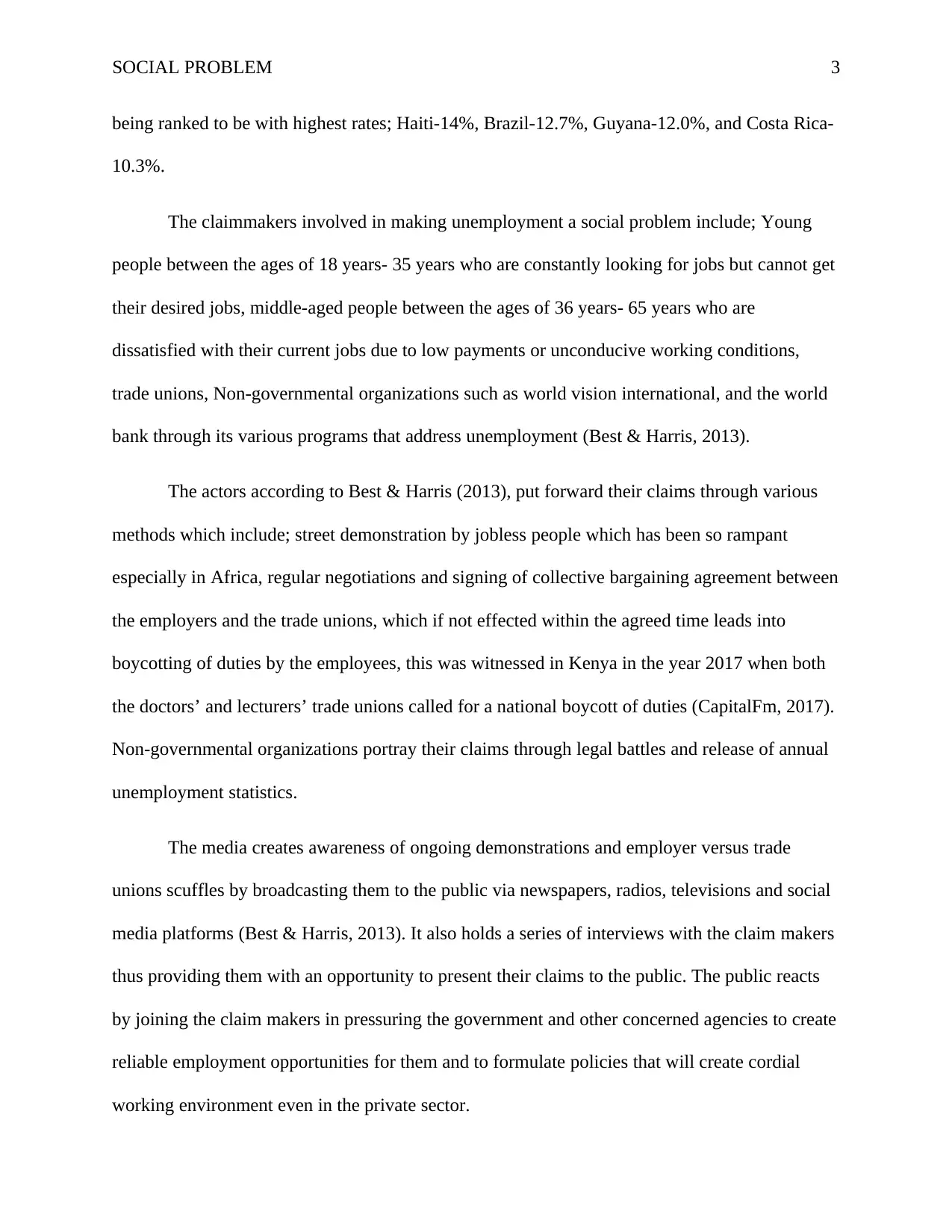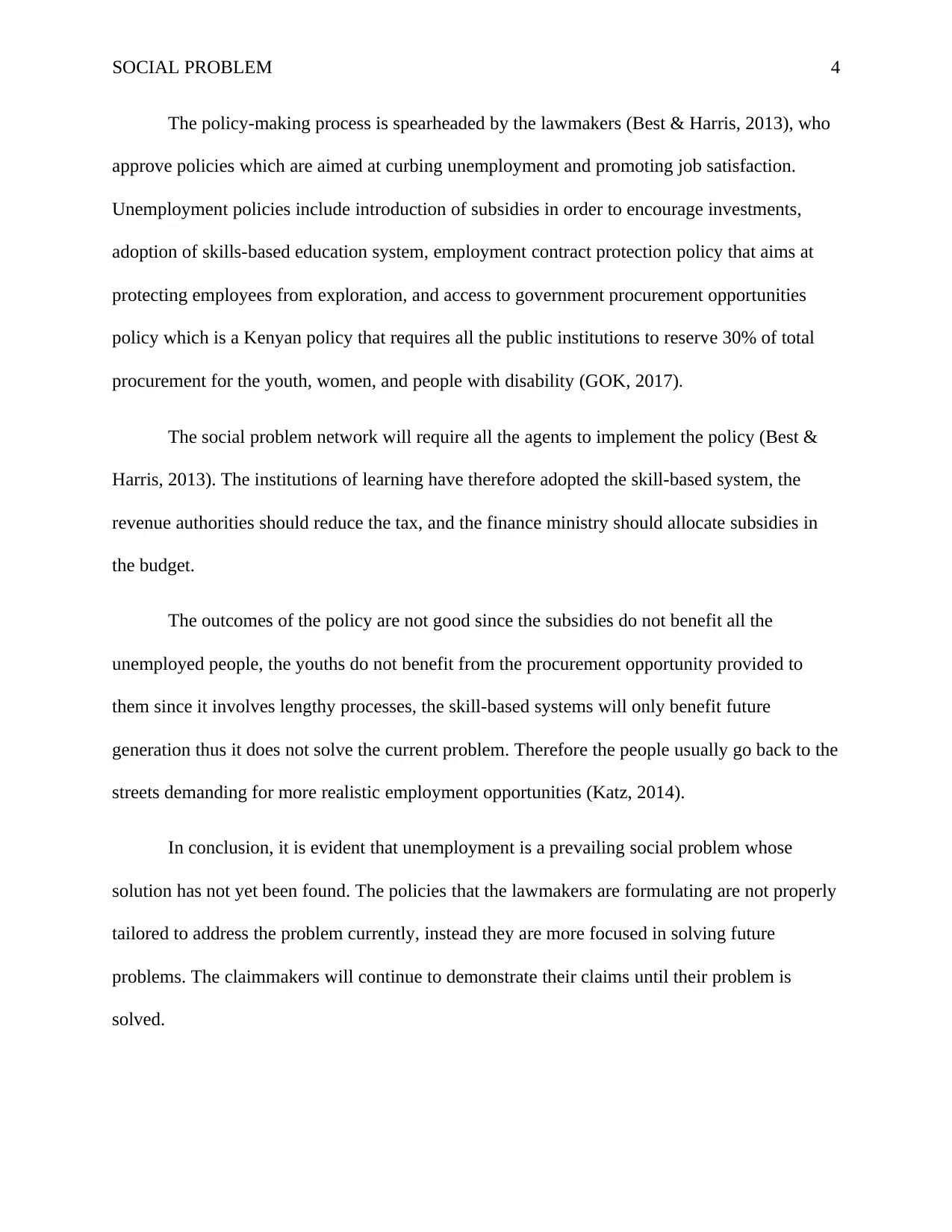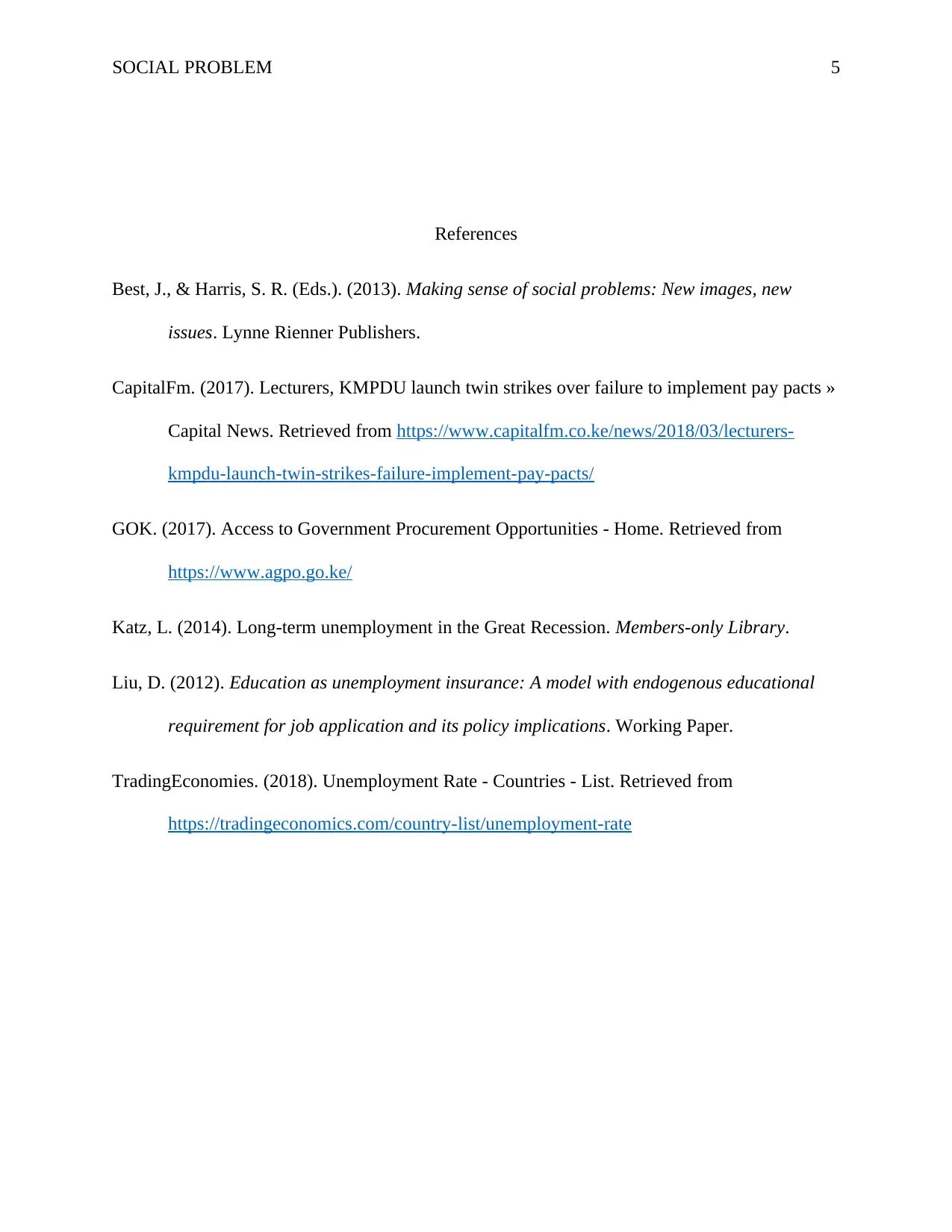This essay discusses unemployment as a social problem, including its causes, rates, and claimsmaking process. The causes of unemployment include high population, skills mismatch, lack of strong policies, limited financial resources, and poor governance. The global rates of unemployment are highest in African countries, followed by European countries, and lowest in American countries. The claimsmakers involved in making unemployment a social problem include young people, middle-aged people, trade unions, NGOs, and the World Bank. The claimsmakers put forward their claims through various methods, including street demonstrations, negotiations, legal battles, and release of annual unemployment statistics. The media creates awareness of ongoing demonstrations and employer versus trade unions scuffles by broadcasting them to the public via newspapers, radios, televisions, and social media platforms. The public reacts by joining the claim makers in pressuring the government and other concerned agencies to create reliable employment opportunities for them and to formulate policies that will create cordial working environment even in the private sector. The policy-making process is spearheaded by the lawmakers, who approve policies which are aimed at curbing unemployment and promoting job satisfaction. The social problem network will require all the agents to implement the policy. The outcomes of the policy are not good since the subsidies do not benefit all the unemployed people, the youths do not benefit from the procurement opportunity provided to them since it involves lengthy processes, the skill-based systems will only benefit future generation thus it does not solve the current problem. Therefore the people usually go back to the streets demanding for more realistic employment opportunities.
![[object Object]](/_next/static/media/star-bottom.7253800d.svg)
![[object Object]](/_next/static/media/star-bottom.7253800d.svg)
